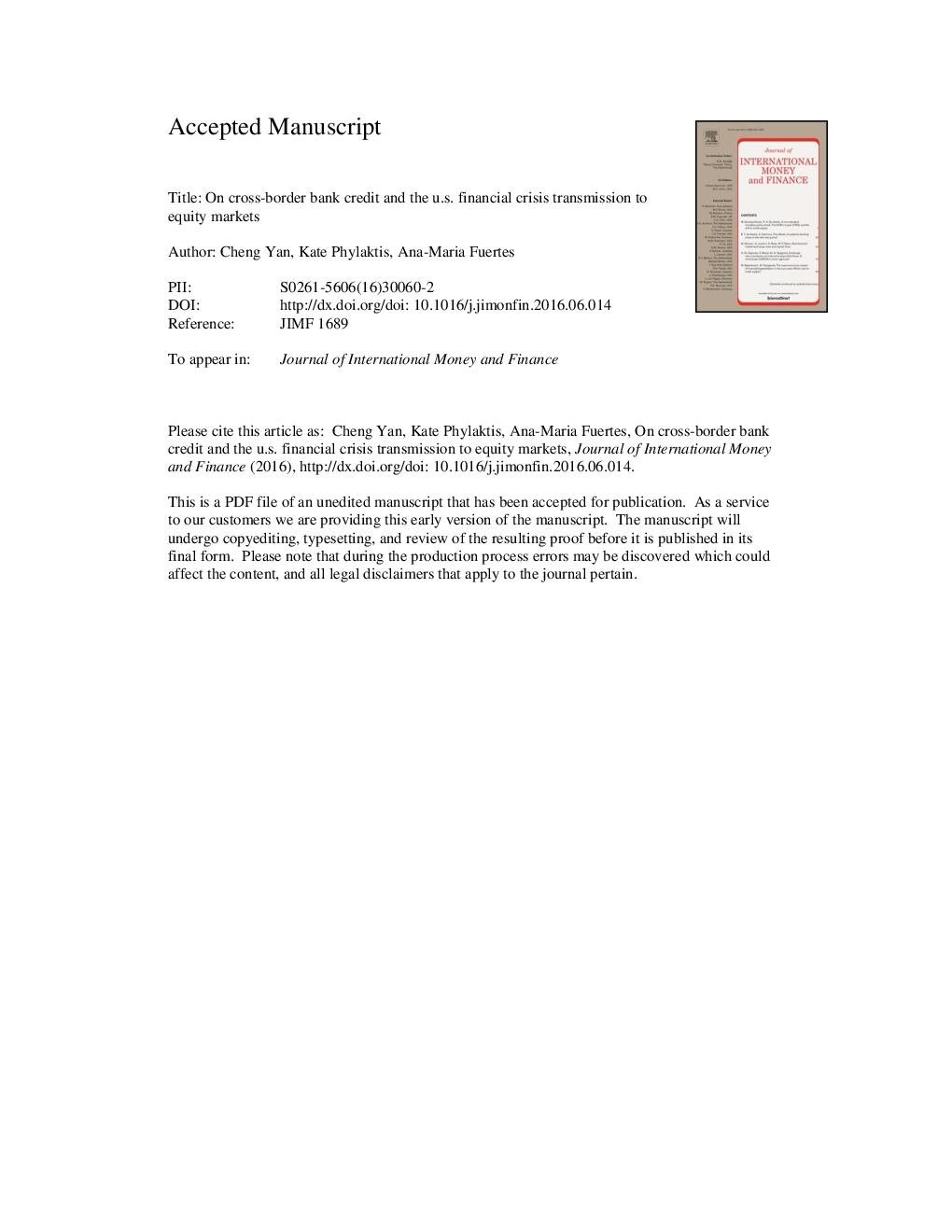| Article ID | Journal | Published Year | Pages | File Type |
|---|---|---|---|---|
| 5101211 | Journal of International Money and Finance | 2016 | 52 Pages |
Abstract
This paper examines the role played by cross-border equity, bond and bank credit flows versus international trade in the transmission of the U.S. financial crisis to equity markets worldwide. We estimate vector autoregressive models with exogenous global factors using monthly data on 36 emerging and developed countries. The results from an eclectic methodology that includes causality tests, generalized impulse responses and forecast error variance decompositions indicate that the crisis is mostly transmitted through bank credit rather than portfolio flows and international trade. The results are robust to altering the exogenous versus endogenous vectors of variables, to measuring equity prices in U.S. dollars or local currency, to averaging the data across countries versus averaging the parameters from individual country estimation, and to redefining the start date of the crisis. The findings endorse the use of banking regulation and capital controls as part of the policy toolkit to limit financial vulnerability.
Related Topics
Social Sciences and Humanities
Economics, Econometrics and Finance
Economics and Econometrics
Authors
Cheng Yan, Kate Phylaktis, Ana-Maria Fuertes,
